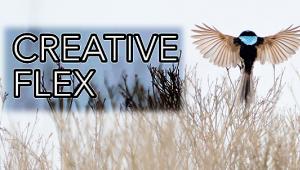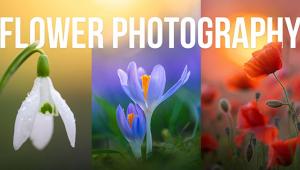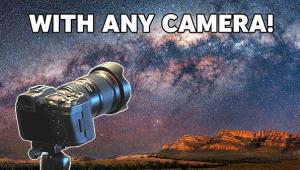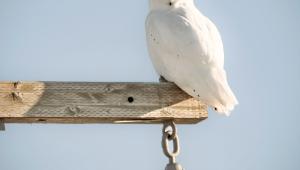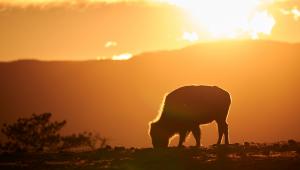How to Shoot & Edit Nature Photos with Featureless Blue Skies (VIDEO)

Clear blue skies may be great for picnics or a trip to the beach, but when it comes to landscape photography not so much. Or as Portuguese photographer Andy Mumford says, "Blue skies without drama are among the hardest conditions for making impactful images."
With a home base in Lisbon Mumford travels the globe in his quest to capture stunning nature, travel, wildlife, and landscape imagery. In this helpful episode he discusses a successful approach to shooting all types of outdoor images when confronted with featureless skies—a situation that's the bane of all outdoor photographers.
Mumford is shooting in Italy's magical Dolomite mountains, a place so special to him that he visits the region at least once a year. He begins with a discussion of why a specific approach to composition is required when there's nary a cloud in flat, boring skies.

The basic plan under these conditions is to concentrate on the foreground and other key elements, while making the most of whatever light is available. As you'll see, Mumford's thoughtful approach enables him to capture very dramatic images. The key to his demonstration image is an imposing peak in the distance (and it's reflection in a small foreground lake).
One of Mumford's challenges is to compose the scene in a way that distracting reeds and other floating plants in the water don't obscure key areas of the refection. He also makes use of a small tree growing out of a log near the camera position to add interest to the shot captured with a wide-angle lens.
As you'll see, there's an abundance of negative space in the shot, and Mumford was able to best handle that by flipping the camera into a vertical orientation. While this framing greatly improves the impact, careful post processing is required to make the shot really special.

Mumford uses Lightroom to make the necessary enhancements, and he walks you through the detailed step-by-step method for his impressive transformation. The process doesn’t begin on the computer but rather in Mumford's brain, as he takes time to reflect upon the specific look and mood that he wants to convey.
The processing technique isn't difficult, but it consumes the balance of the video, so pay close attention and maybe jot down a few notes. Mumford turns to Photoshop for some quick finishing touches once the Lightroom adjustments are complete. Overall this is a great approach to take when photographing scenes with unimpressive skies.
There's much more to learn on Mumford's popular YouTube channel, so be sure to pay a visit and see what else he has to offer.
And don't miss the helpful explainer we featured recently, with several basic tips for beginning time-lapse photographers. It's easier than you think and no special gear is required.
- Log in or register to post comments
